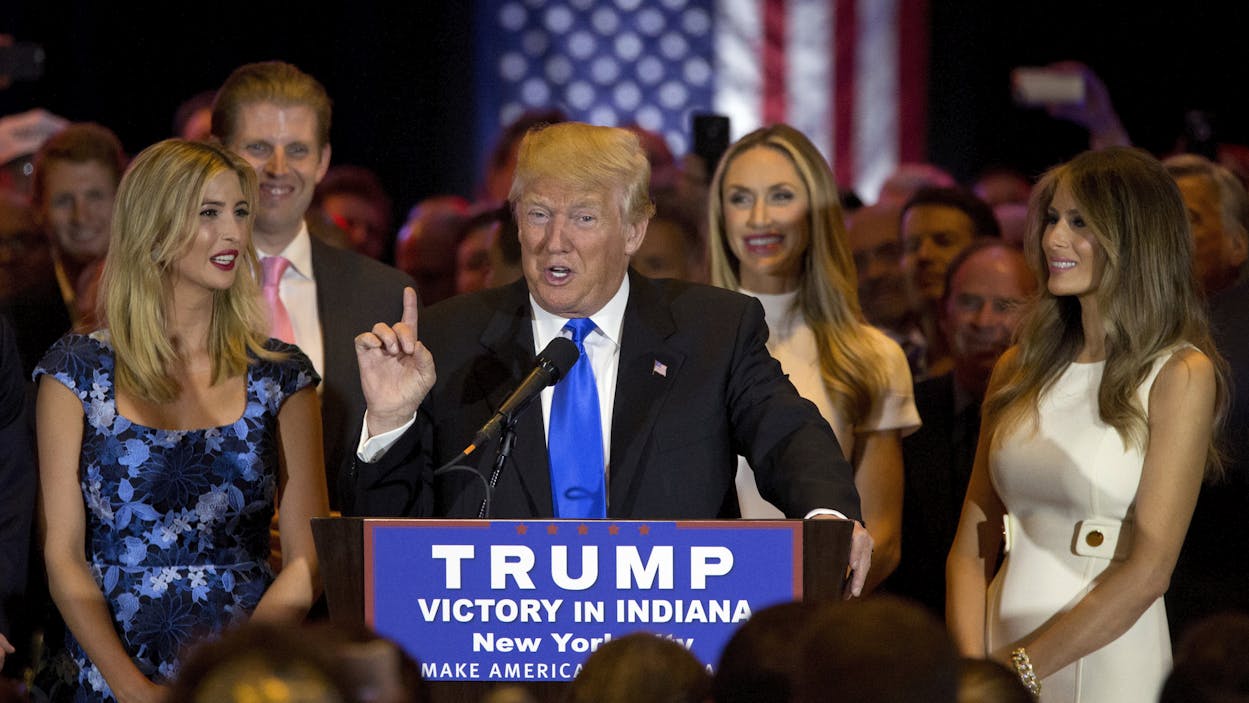Many Americans this morning woke to an unpleasant reality, thanks to Republican voters in Indiana. A majority of them, 53 percent, went for Donald Trump, thus essentially clinching the GOP’s 2016 presidential nomination. Having mustered just 37 percent of the vote in a state that he had deemed a must-win, Ted Cruz announced that he would suspend his campaign. (The only other remaining candidate, Ohio Governor John Kasich, plans to drop out of the race on Wednesday, according to multiple media reports.)
There are, of course, plenty of postmortems on Cruz’s campaign making the rounds today. I’d recommend the one by Katie Glueck and Shane Goldmacher, at Politico. And, for my own part, I’d just add that for all Cruz’s flaws, and even taking a maximalist view of his missteps this year, none of the many Republicans who ran for the nomination this year did more to stop Trump from taking over this failed party than Cruz did, so the schadenfreude being directed at him by certain corners of the establishment strikes me as entirely misplaced. Is Cruz likeable enough to be president? Apparently not; even so I’d say he’s considerably more likeable than Trump, in addition to being more sane, intelligent, dignified, and decent, among other things.
Trump, as I’ve written many times, is a disgraceful spectacle, and so I wish Cruz had pressed on, even if his prospects of forcing a contested convention were slim. By doing so he could have cost Trump an additional two months, which the latter will now be able to use for his general election campaign. Still, if not for Cruz, Trump would have been able to begin his general election campaign after Super Tuesday, on March 1st—and what’s done is done. Stopping Trump from winning the presidency is now up to us.
By “us” I mean all Americans, regardless of ideology or party affiliations. In the wake of Trump’s victory in Indiana, Republican leaders will be forced to confront the question that many were clearly hoping to avoid, over whether to support his candidacy should he become the party’s nominee. I was disappointed to see that our governor, Greg Abbott, is among those who have decided to do so, and I disagree with his suggestion that Hillary Clinton, the presumptive Democratic nominee, is worse than Trump. She’s not. Though I can see a queasily plausible line of argument that Republican elected officials should support Trump out of small-d democratic principle—the people have spoken, in their primary—I can’t see any such case based on an argument about the relative merits of the presumptive nominees.
Conservatives who are trying to convince themselves that Trump will, at least, stand for some of their principles, are kidding themselves about his ideological commitments. A number, for example, will reference the fact that the next president will probably appoint at least one Supreme Court justice, even if the United States Senate now proceeds, as it should, to confirm Merrick Garland, who Barack Obama nominated to replace Antonin Scalia in March. What they need to realize is that there’s no longer any possibility that a conservative president will make those appointments; the best they can hope for, if they’re being honest, is a president with a cursory understanding of the Constitution itself. More importantly, conservatives who are trying to convince themselves that Trump is preferable to Clinton for ideological reasons are kidding themselves about whether their ideological commitments are a defensible concern at this point. The United States is still the most consequential country in the world. And the next commander-in-chief, whoever it is, may have to send troops into war. Clinton is clearly more qualified to do so than Trump, who is so thin-skinned and emotive that he viciously mocked a disabled reporter for pushing back against one of his many, breezy, pathological lies.
Current matchup polls suggest that a majority of Americans see it that way, and I’d like to believe, as many people do, that the same will be true come November. But I’m old enough to remember three months ago, when many people blithely believed that self-described evangelical voters in the Bible Belt would be wary of Trump, a candidate who likes church for the same reason normal people like Costco: sometimes you get to eat a free little cracker. So I think we should err on the side of not being fatally complacent here. The good news, such as it is, is that Texas has a role to play here, as I suggested we might in December, but I’ll revisit that tomorrow. For now, let’s all just think about what we’ve done, and say a prayer for our nation, the greatness of which is now imperiled.
Update: This post has been changed to reflect news reports that Kasich plans to suspend his campaign.







